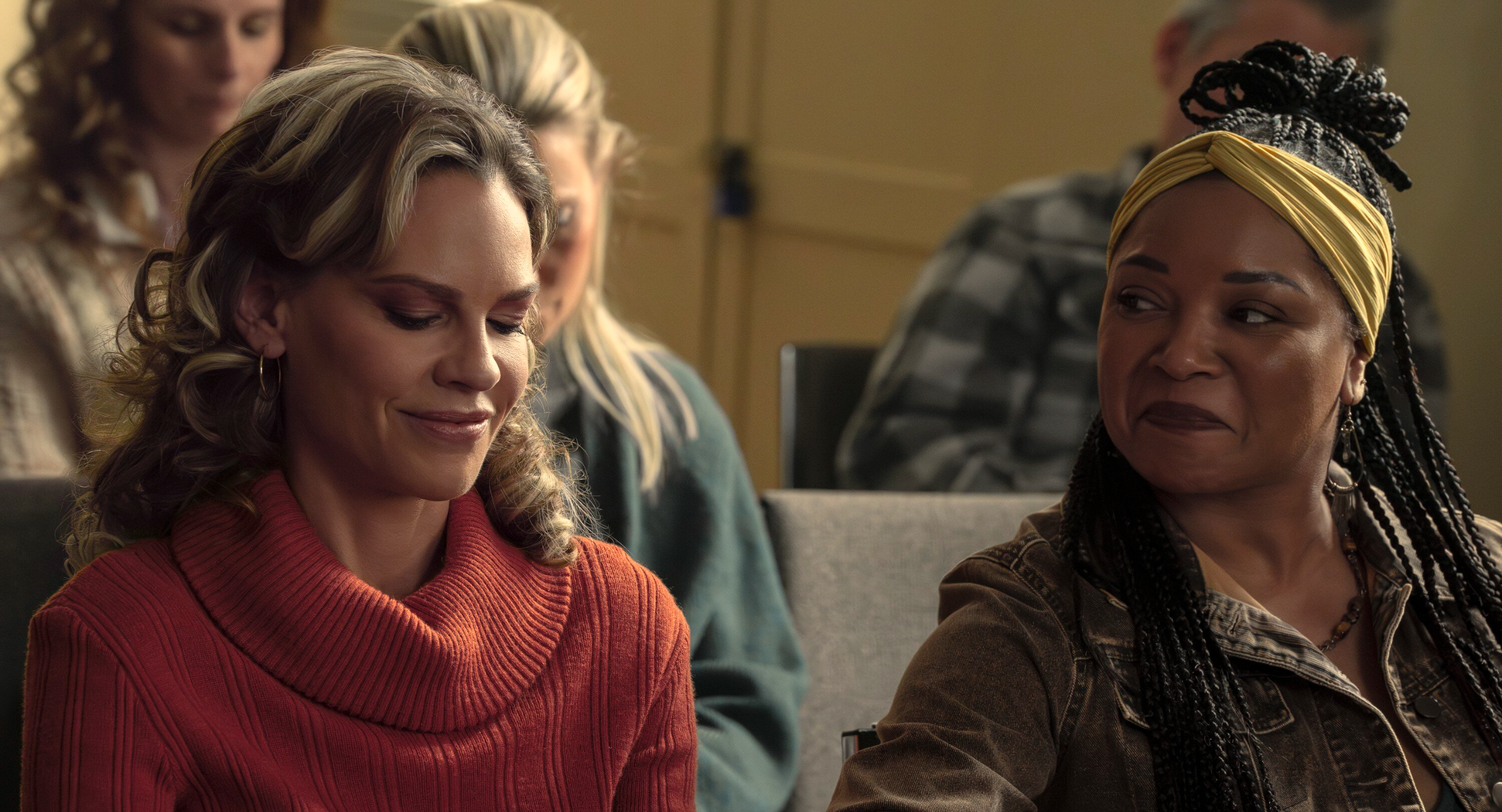Ordinary Angels – Film Review
Published March 26, 2024

Ordinary Angels is a faith-based drama film directed by Jon Gunn, boasting an intriguing plot based on true events and an ensemble cast led by Hilary Swank. The film, written by Meg Tilly and Kelly Fremon Craig, draws its inspiration from a heartfelt story of community and resilience amidst the chilling backdrop of the 1994 North American cold wave. The premise alone piques interest, promising a blend of historical depth and emotional narratives. Unfortunately, while the film delivers moments of genuine warmth and insight, it falters in fully realizing its potential, settling somewhere in the realm of heartfelt but uneven storytelling.
At the heart of Ordinary Angels is Sharon Stevens, portrayed with compassionate earnestness by Hilary Swank. Sharon, a hairdresser in Louisville, Kentucky, becomes an unexpected hero when the town is ensnared by a severe snowstorm. Her character’s journey is intertwined with that of Ed Schmitt, a widowed father played by Alan Ritchson, whose young daughter is critically ill. With the town immobilized by the snow and temperatures plummeting, the storyline unfolds as a rallying cry for community, showing how ordinary individuals can achieve extraordinary feats when they come together. Nancy Travis and Tamala Jones support the cast admirably as Barbara and Rose, respectively, each adding depth and warmth to the community tapestry. Drew Powell’s role as Pastor Dave offers a touchstone for the faith-based elements of the narrative, grounding the film in a spiritual context without overwhelming its broader appeal.
The premise is rich with potential, leveraging a severe weather event that indeed impacted millions of lives in 1994 as a backdrop for a tale of hope and human kindness. This choice adds a layer of authenticity and gravity to the narrative, positioning the film to explore themes of community, faith, and perseverance in the face of adversity. In many ways, Ordinary Angels delivers on this promise. Scenes depicting the community coming together to support Ed and his daughter are moving and effectively capture the essence of communal strength. Swank’s performance, in particular, anchors these themes, providing a compelling portrait of altruism and courage.
However, the film is not without its missteps. One significant issue is its pacing and development of secondary characters. At times, the narrative feels rushed, glossing over moments that could have lent greater emotional weight or provided more insight into the community’s dynamics. The film struggles to balance its ensemble cast, leaving characters like Barbara and Rose feeling underdeveloped. As a result, their contributions to the story, while meaningful, lack the impact they might have had with more fleshed-out backgrounds or arcs.
Moreover, the film occasionally veers into melodramatic territory, particularly in its efforts to highlight the spiritual elements of the story. While faith-based films often walk a fine line between inspiration and preachiness, Ordinary Angels sometimes stumbles, leaning towards the latter. These moments can feel jarring and detract from the otherwise universal appeal of its message about human connection and resilience. This is not to say that the faith-based aspects are inherently flawed; indeed, when handled with nuance, they add a rich layer to the narrative. It’s the execution that falters, at times feeling heavy-handed or simplistic.
Visually, the film manages to capture the bleakness and beauty of a snow-bound Louisville, and the cinematography admirably supports the story’s emotional beats. The soundtrack, while not particularly memorable, serves its purpose, underscoring key moments without becoming intrusive. These technical aspects, while competently handled, do not stand out as exceptional but rather as sufficient scaffolding for the story.
Ordinary Angels is a film with its heart in the right place. Its foundation—built on true events, compelling themes, and a notable cast—offers a promising blueprint. Hilary Swank’s performance is a standout, delivering depth and empathy in her portrayal of Sharon Stevens. The moments where the community’s solidarity shines through are genuinely touching, embodying the spirit of compassion and cooperation the film aims to celebrate. However, the execution is hampered by issues of pacing, character development, and at times, an overemphasis on its faith-based messaging. These elements detract from its impact, leaving a feeling of what could have been—a narrative with all the right ingredients that, ultimately, doesn’t quite deliver the depth or coherence it aspires to. Ordinary Angels is a mixed bag that, despite its flaws, reminds us of the extraordinary possibilities within ordinary acts of kindness.
